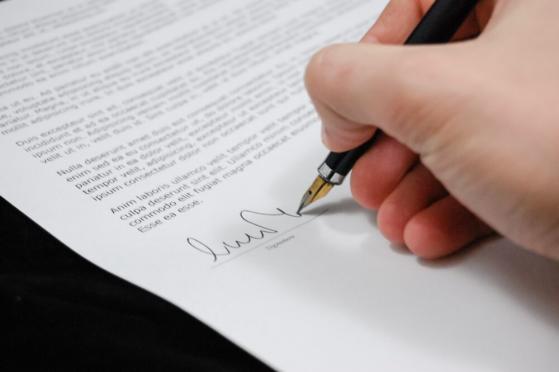Saving Advice - Forming new financial habits and holding yourself accountable to your money goals can be extremely difficult. In fact, studies have shown that 92% of people don’t achieve the personal goals they set. In order to break your bad money habits and hit your savings targets, you need to be highly motivated. You also have to find ways to avoid numerous temptations and keep yourself on track.
One of the strategies I use to stick to my financial commitments is creating a personal accountability contract. It’s a document that outlines the financial goals you want to achieve and the steps you’re going to take to make them happen. Some personal accountability contracts may also have built-in consequences that kick in if you fail to achieve your goals, which can help keep you motivated.
Here’s an overview of how to create personal accountability contracts to help you achieve your financial goals.
How to Create a Personal Accountability Contract
To create effective personal accountability contracts, you first need to define your top financial priorities. You shouldn’t try to spread yourself too thin and split your focus between too many money goals. I like to pick my top one to three priorities and make a commitment contract for each of them.
Set SMART Goals It’s also important to ensure that the goals you pick are SMART—specific, measurable, achievable, relevant, and time-bound. For example, wanting to spend less on groceries this month is nonspecific. However, you can turn that intention into a SMART goal by saying that you want to do a pantry challenge for a month and invest the money you save on groceries in the stock market.
Outline the Steps You’ll Take to Achieve Your Goals Once you have your SMART goals, it’s time to define the steps you’re going to take to achieve them. For the pantry challenge, you may decide to create an inventory of all the food you have in your pantry, fridge, and freezer. Then you might commit to making a meal plan based on the ingredients you already have before you even consider going to the grocery store.
If grocery trips are allowed, you might set a limited budget that’s lower than your normal monthly food cost, such as $100. This will allow you to meet your goal of reducing your grocery costs this month and investing the funds you save in the stock market.
Build in Some Consequences Personal accountability contracts without consequences are still helpful. They enable you to get clear on your financial goals and identify the steps you need to take to achieve them. However, building consequences into your contract can motivate you even further because there are repercussions for failing to meet your goals.
Studies have shown that losses are more motivating than gains. So giving yourself a consequence for failing to achieve your financial goals could be more effective than promising yourself a reward for a job well done.
One popular consequence I’ve seen a lot of people use is a donation to a charity they don’t like. However, I prefer to take away one of my luxuries for a month as a consequence, such as eating out or getting coffee. Even if I don’t hit the savings goal in my accountability contract, I’ll still be able to save some money through the consequences I set.
Share Your Contract Signing your name at the end of the contract will help solidify your commitment to following the terms and rules of your agreement. Sharing your contract with others can also add an extra layer of accountability that will keep you on track. Research suggests that you’re four times more likely to achieve your goals if you publicly declare them, so consider sharing your contract on social media or showing it to friends.
Have you ever used a personal contract to hold yourself accountable to your financial goals? If not, are you open to trying it? Share your thoughts in the comments!
